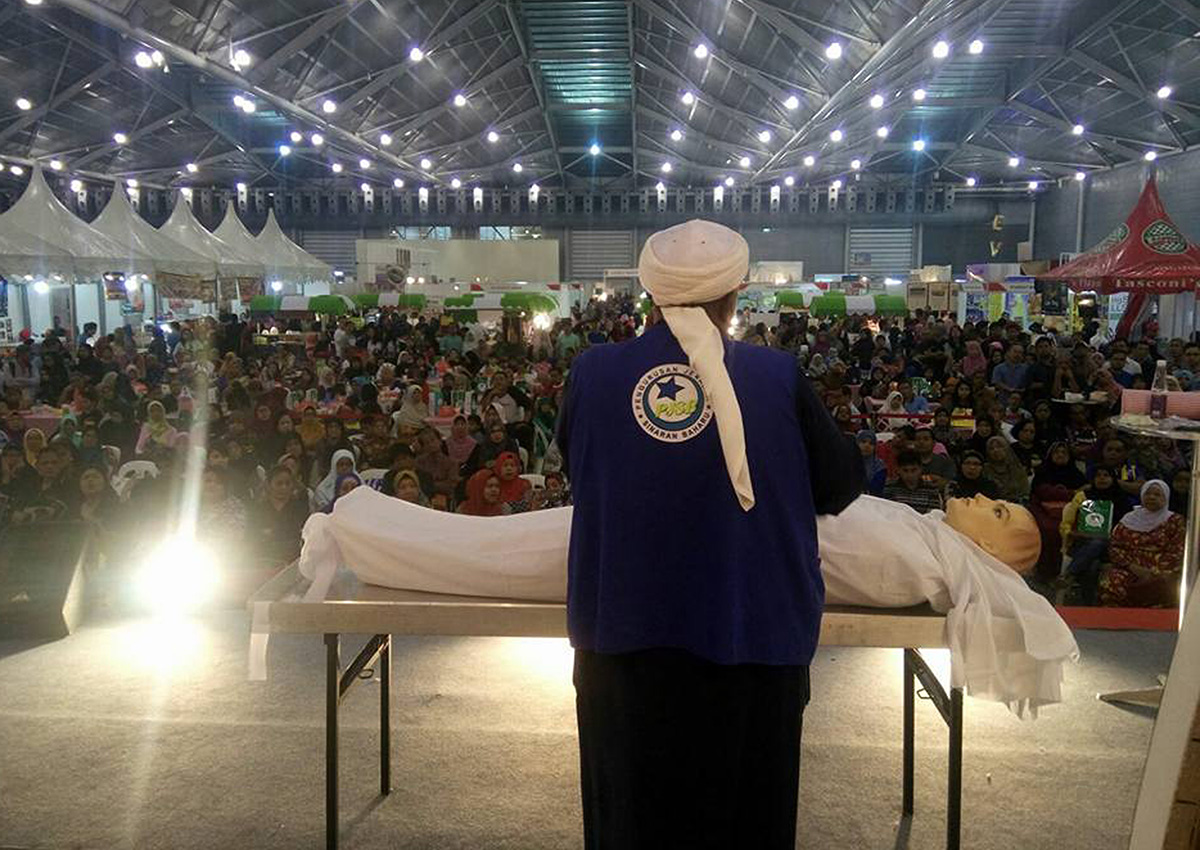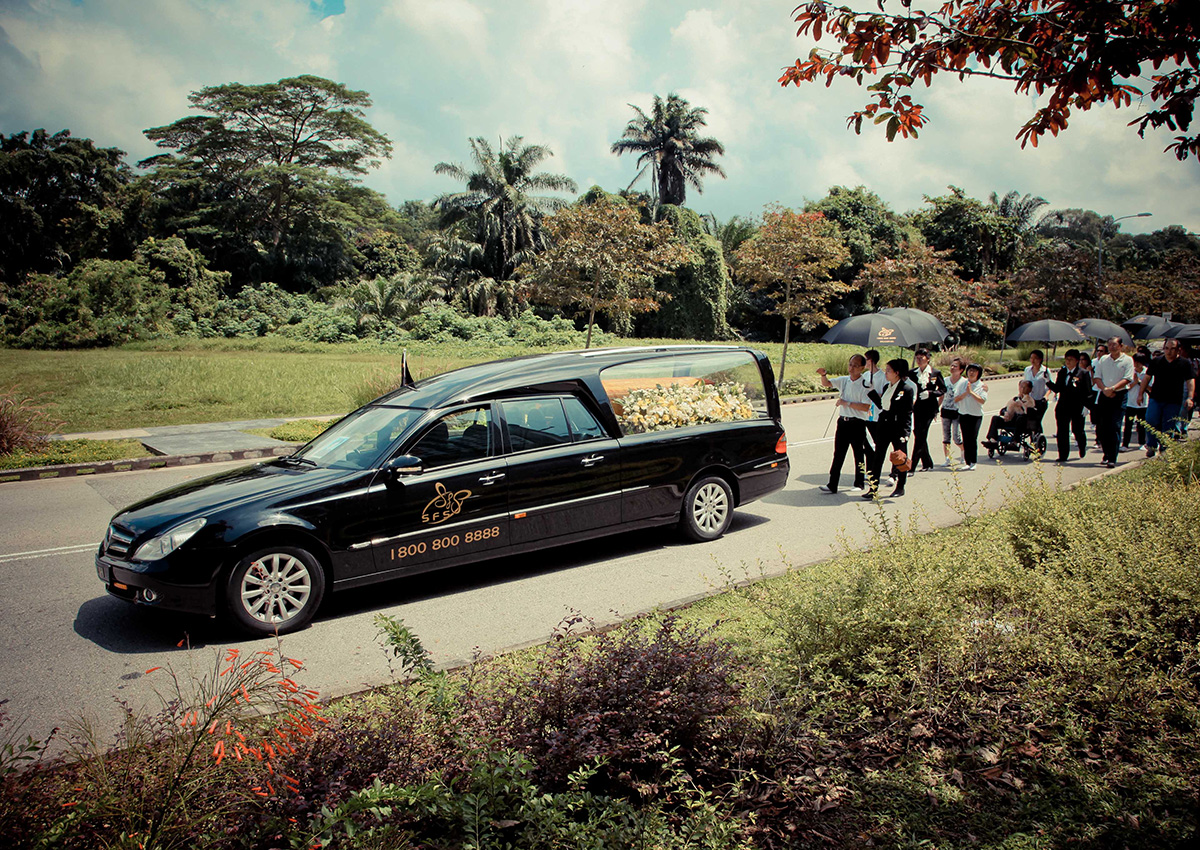Pay for funerals in instalments.
And not just your own funeral.
Yes, there are schemes that allow people to make regular, upfront payments to a group fund to ease the burden of families who cannot afford it.
Khairat kematian is a scheme where people can sign up to ensure that their last rites will be executed without complications.
It operates on a principle of mutual benefit; everyone pitches in a small amount for the person who needs the money.
Engineer Yahya Ahmad, 57, is a believer of this practice.
Four years ago, he started setting aside $5 a month to ensure that when he dies, all funeral arrangements will be carried out for him at no extra charge.
All the necessary procedures,such as prayers, bathing the body, embalming and even transport to the burial ground, will be included.
NO WORRY
Says Mr Yahya: “I no longer have to worry about what will happen when I pass on as everything is settled.”
These schemes are carried out by Muslim burial service organisations.
Mr Yahya belongs to the Persekutuan Kebajikan Islam Teluk Kurau, which has been carrying out this scheme for more than 60 years.
The organisation has over 5,000 subscribers to the scheme, which also covers spouses.
Teluk Kurau’s administrative executive, Mr Ariffin Yusoff, 65, says the concept of khairat kematian has been around since people were living in the kampung.
The average cost of a Muslim burial is around $1,400. Mr Ariffin says that some people have been paying Teluk Kurau for more than 20 years.
“In a way, those who sign up for this not only help themselves, they also help other members of the community (who can’t afford a funeral),” adds Mr Ariffin.
He says about 10 other Muslim burial service organisations have this khairat kematian scheme.
More than 120 people have signed up for the two-year-old scheme offered by Persatuan Kebajikan Islam Sinaran Baharu .
Mr Roslan Sambri, the 52-year-old director of Sinaran Baharu, says: “It helps to lessen the worry for the person who signed up, and also you get to help people who might be in need.
“It is what we encourage in Islam – to support one another.”
Sinaran Baharu and Teluk Kurau are both Mutual Benefit Organisations registered under the Ministry of Culture, Community and Youth.
“We regularly submit reports about our company, and all the money we collect goes to the appropriate avenues,” says Mr Ariffin.
“This is money that people have entrusted to us. We are not going to misuse it.”
“We were put on this earth to not just think about ourselves,” says Mr Ariffin.
“This way I get a peace of mind, but also I get to help people at the same time.”
Going out on your own terms
Singapore Funeral Services (SFS) launched a monthly instalment package for pre-planned funeral services about two years ago.
Funeral director Hoo Hung Chye says about 200 people have signed up for this package.
Mr Hoo says: “Funerals can be expensive so we want to reduce the financial burden placed on family members.”
Customers who sign up for the plan, called Legacy, pay $138 a month for 10 years.
The three-day, two-night service includes a void deck enclosure with tables and flowers, a wooden coffin, a Mercedes Benz to take the coffin to the crematorium and an air-conditioned bus to transport about 45 mourners.
CUSTOMISABLE
The $13,888 Legacy package is just one of the options available, says Mr Ho. SFS can customise the package too.
Many of those people who sign up for the prepaid plans live alone or are in their 50s and older.
Mr Hoo says such services are offered overseas and it is time Singapore followed suit. (See report, below.)
“If you take a look at the global market, people have been doing it for a long time. Death has always been taboo but people are opening up,” he says.
“With this option, people can continue living their lives without it at the back of their minds.”
Customers can pick everything – from coffins to music choice.
Direct Funeral Services (DFS), offers the pre-planned service because it helps avoid disagreement later.
Ms Jenny Tay, the company’s managing director, says: “Sometimes, there is a conflict over what the deceased would have wanted, especially when it comes to religious rites.
“Pre-planning avoids this and lets people decide what’s best for them.”
While these plans can be made in advance, customers cannot pay upfront for everything.
“We only allow people to prepay things for which the service has been done, like importing a particular coffin. For any services that have not been delivered, the payment will be settled after,” says Ms Tay.
Overseas ‘try before you die’ practices
JAPAN
The practice of funeral planning has become so popular in Japan that there is an annual festival.
The Shukatsu festival sees as many as 50 different coffin companies and businesses exhibit their products and services for visitors to try ahead of their funeral.
Visitors can test coffins for comfort, try on their funeral make-up and even the outfits they want to be buried in.
Shukatsu, which loosely translates to “preparing for one’s end”, is a yearly hit with visitors. Last year, the festival, which is held in Tokyo, attracted more than 5,000 people.
There are even Shukatsu tours so people can travel to different locations to have their funeral portraits taken and see where they would like their ashes scattered.
There are also tours to local cemeteries and homes for the elderly. The tours are so popular, there are waiting lists.
UKRAINE
In Ukraine, people lie in coffins to get used to them.
Mr Stepan Piryanyk, a coffin producer whose company makes about 1,000 coffins a month, has set up a special room for coffin therapy – where people can rest in a coffin and experience being dead.
According to a BBC report, people can choose to pay about $30 for 15 minutes to experience death. While they are in the coffins, the sound of a waterfall and birds fill the room.
“When a person lays here, it should be like confession. Maybe he will lie down and think about their actions, and repent,” says Mr Piryanyk.

This article was first published on April 03, 2016.
Get The New Paper for more stories.













